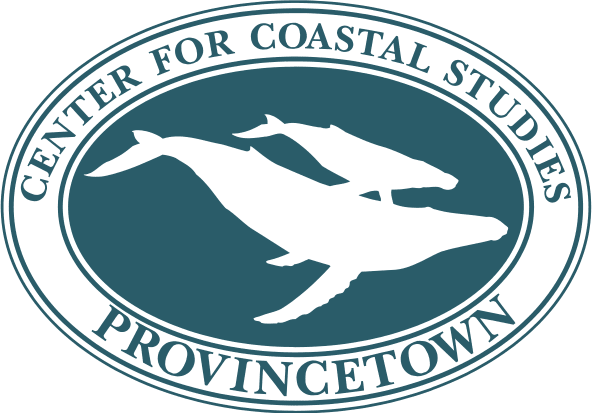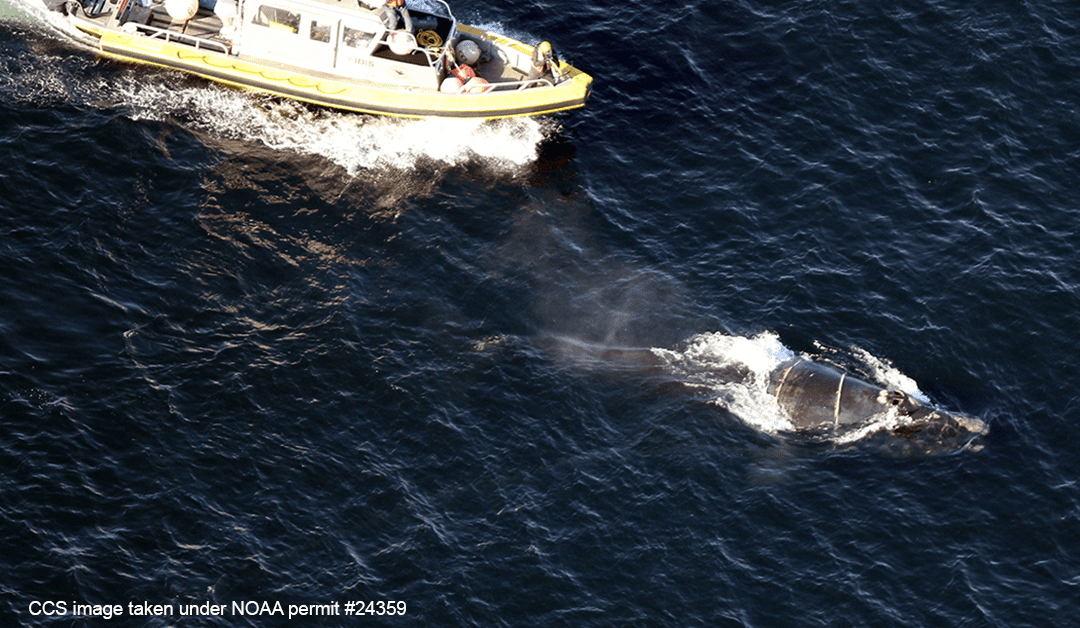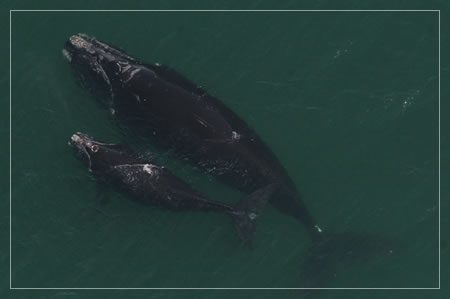On Wednesday afternoon the Center for Coastal Studies Marine Animal Entanglement Response (MAER) team removed 200 feet of entangling rope from a North Atlantic right whale found in Cape Cod Bay. The whale currently remains entangled. As part of its response, the MAER team outfitted the whale’s remaining wraps with a telemetry tracking buoy and is monitoring information received from the buoy and the weather in the hopes there can be another opportunity for further disentanglement attempts.
Earlier in the day the MAER team came across the badly entangled right whale in the Bay feeding within a large aggregation of right whales. The whale, identified as #4545, is a female who was first discovered entangled south of Nantucket in February. The MAER team could not respond to the whale at that time due to the distance and the lack of daylight. All that could be discerned about her entanglement was that she had a long length of heavy rope caught through her mouth. Since then, the entanglement has developed into a highly complex and lethal one, with multiple wraps around her body and likely also her flippers.
During the MAER team’s Wednesday response, the team removed the 200 feet of very thick rope from her entanglement and attached a small telemetry buoy to facilitate tracking before losing the daylight. The team will be looking for very good weather conditions to attempt what will likely be a difficult and complicated disentanglement. Such conditions are rare this time of year, but the team is hopeful that there will be another opportunity.
Scott Landry, director of MAER said, “this is obviously a difficult situation. We worked very hard for this whale on Wednesday and she did all she could to avoid us. With the telemetry buoy in place on her entanglement all of our attention will be focused on trying again.”
The whale is one of about 350 remaining right whales. Her case highlights the continuing need to find a reduction in the amount of rope in whale habitats. “Whales can pick up gear from anywhere within their range and drag it around for weeks and months. Their range is huge, stretching from Canada to Florida. Using disentanglement as a tool for conservation is helpful but has its limitations. We have no control over when or where an entangled whale will be discovered,” said Landry.
Since 1984, the Center for Coastal Studies has freed more than 200 large whales and other marine animals from life-threatening entanglements using techniques developed by its staff. The Center for Coastal Studies is federally authorized to perform large whale disentanglement under the authority of a permit issued by the National Marine Fisheries Service.
The Center’s disentanglement work is supported by a grant from the National Marine Fisheries Service (NMFS) and the Massachusetts Division of Marine Fisheries (MA-DMF), and the Massachusetts Environmental Trust.



